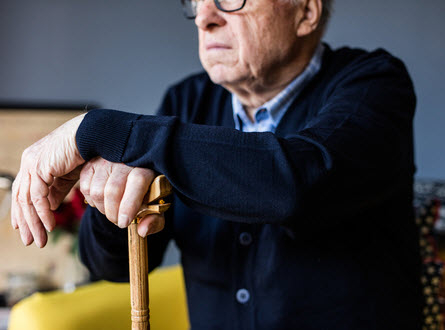Serious falls send many people to nursing homes. Subsequent falls often keep them there. These incidents are both more common, and more severe, in long-term care facilities.
Many older people have issues with balance and gait. If they miss a step or have another such problem, they cannot keep from falling. Additionally, many older people cannot stay away from dangerous situations. Nursing home patients often suffer from Alzheimer’s disease, and these patients may wander aimlessly throughout the facility. They cannot see and understand signs like “Wet Floor” or “Construction: Keep Out.”
Nursing home falls are often more serious than other kinds of falls. Most patients have pre-existing physical conditions, so the injuries are worse. Additionally, older people have a harder time recovering from injury than younger people. In fact, most elderly fall victims cannot live independently again.
A Florida slip and fall attorney may be able to obtain substantial compensation in these cases. That includes money for economic damages, such as medical bills, and noneconomic damages, such as emotional distress.
Legal Duty in Florida Nursing Home Fall Claims
State law uses the victim’s status to establish the duty of care. This classification system is rooted in common law.
Most nursing home fall victims are invitees. They pay money to live at the nursing home and use its facilities. If the victim was an invitee, the property owner had an extremely high duty of care. The owner must ensure that the premises are reasonably safe. Furthermore, the owner, an employee, or agent must frequently inspect the property to ensure that it is safe.
Many social guests are invitees as well. Although the owner receives no economic benefit, the owner usually does receive a noneconomic benefit. Even if the owner did not particularly like the victim, the owner still benefits from social interaction.
Other victims are either licensees or trespassers. Licensees have permission to be on the land, but their presence does not benefit the owner. Trespassers have no permission and provide no benefit. The duty of care is lower for licensees and practically nonexistent for trespassers.
Establishing Knowledge in a Nursing Home Fall Case
A high duty of care does not automatically establish liability for damages. However, it does make liability easier to prove in court. In invitee injury cases, the victim/plaintiff need only show knowledge of the dangerous condition.
Sometimes, there is direct evidence of knowledge. Attorneys usually uncover things like restroom cleaning reports and unpaid repair invoices during discovery.
If there is no direct evidence of knowledge, that’s okay. Victim/plaintiffs may also use circumstantial evidence to establish constructive knowledge (should have known). This process usually involves the time/notice rule.
If the wet floor, uneven walkway, loose handrail, or other hazard had been a problem for a while, an employee (and therefore the owner) should have discovered it and done something about it. On the other hand, if the hazard was recent, the opposite is true.
Think of a victim who slips on a piece of lettuce at a grocery store. If the lettuce was wilted and dried, it had probably been on the floor for some time. Therefore, constructive knowledge attaches. But if the lettuce was wet and crisp, it probably just fell on the floor, so there is no knowledge.
In this example, even if the lettuce was fresh, the victim might still be entitled to compensation. Perhaps the owner failed to put non-slip mats on the floor or did not take other necessary precautions.
Reach Out to Tenacious Attorneys
Nursing home falls often cause serious injuries. For a free consultation with an experienced personal injury lawyer in Brandon, contact Reed & Reed. We have four area offices (St. Petersburg, Lakeland, Tampa, and Clearwater).
Resource:
cdc.gov/homeandrecreationalsafety/falls/adultfalls.html
https://needreed.com/the-three-parts-of-a-florida-slip-and-fall-claim/

